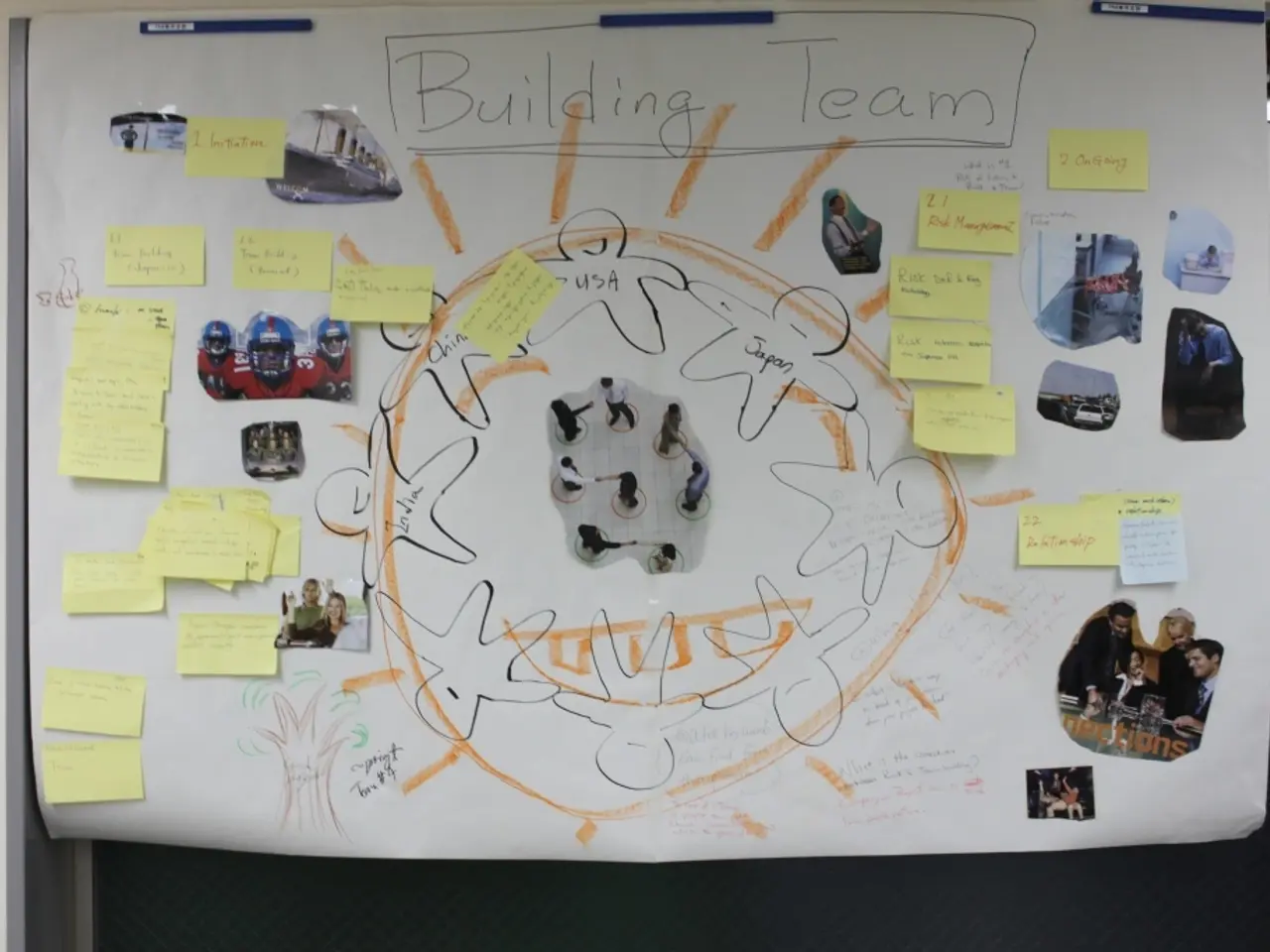Sign of a Harmful Romantic Connection?
In the complex world of human relationships, it's essential to understand the signs and characteristics of toxic relationships. Such partnerships can cause prolonged pain and sorrow for one or both partners, and they can have a detrimental impact on one's physical and mental health.
One common sign of a toxic relationship is the feeling of constantly walking on eggshells. This is when you find yourself tiptoeing around your partner's moods or behaviors to avoid conflict or emotional outbursts, often out of fear of verbal or physical abuse.
Another sign is feeling drained or exhausted after interactions with your partner. A healthy relationship should leave you supported and energized, not physically and emotionally worn out.
Doubting your perceptions, also known as gaslighting, is another red flag. This occurs when your partner manipulates you to question your memories, feelings, or reality, undermining your confidence and sense of truth.
Constant criticism and belittling, lack of trust and jealousy, controlling behaviors, isolation from loved ones, an unstable emotional climate, feeling insecure or unworthy, and one-sided support are other common signs of toxic relationships.
People who find themselves in these types of relationships often have low self-esteem and take on the victim role. However, it's important to remember that seeking support from friends, family, or professional counseling services can provide stability during the ending of a toxic relationship.
Drawing a clear line and communicating the separation clearly is crucial to avoid constant going back and forth between restarting and ending the relationship. It's also important to avoid getting upset and raising one's voice, as this can escalate the situation. Setting clear boundaries is essential when ending a toxic relationship to protect oneself emotionally.
Healing, self-reflection, and self-care are crucial phases after ending a toxic relationship. This includes actively shaping self-care, such as through regular exercise, healthy eating, and adequate sleep, as well as allowing and processing feelings, such as grief, anger, and relief.
Building and living healthy relationships requires awareness and self-protection, open communication, and a conscious approach to prevent falling into unhealthy dynamics again. A healthy relationship thrives on mutual respect, honesty, and trust, with both partners openly discussing their feelings, wishes, and boundaries.
Couples therapy can provide advice and have a third, neutral person as an observer and referee in clarifying conversations. In a healthy relationship, both partners can freely pursue their own interests and express their opinions.
Remember, it's never too late to seek help or make a change. If you're in a toxic relationship, know that you're not alone, and there are resources available to help you.
[1] Leibrich, Josua. "Behavioral and Schema-Therapeutic Methods: A Guide to Healing." Wuerzburg: Self-Published, 2020. [2] "The Signs of a Toxic Relationship." Psychology Today. 15 June 2021. [online] Available at: https://www.psychologytoday.com/us/blog/the-emotional-road-ahead/202106/the-signs-toxic-relationship [3] "Understanding Toxic Relationships." Mayo Clinic. 12 October 2020. [online] Available at: https://www.mayoclinic.org/healthy-lifestyle/adult-health/in-depth/toxic-relationships/art-20048389 [4] "What is Gaslighting?" National Domestic Violence Hotline. [online] Available at: https://www.thehotline.org/resources/what-is-gaslighting/ [5] "Recognizing and Ending a Toxic Relationship." Help Guide. 2021. [online] Available at: https://www.helpguide.org/articles/abuse/recognizing-and-ending-a-toxic-relationship.htm
- Engaging in healthy lifestyle practices, such as exercise, healthy eating, and adequate sleep, can help aid the healing process after ending a toxic relationship.
- Seeking guidance from books like "Behavioral and Schema-Therapeutic Methods: A Guide to Healing" by Josua Leibrich can provide support during the ending of a toxic relationship.
- Understanding the signs of gaslighting, which is a manipulation tactic used in toxic relationships, is important in recognizing and addressing unhealthy dynamics in partner relationships, mental health, and overall lifestyle.




